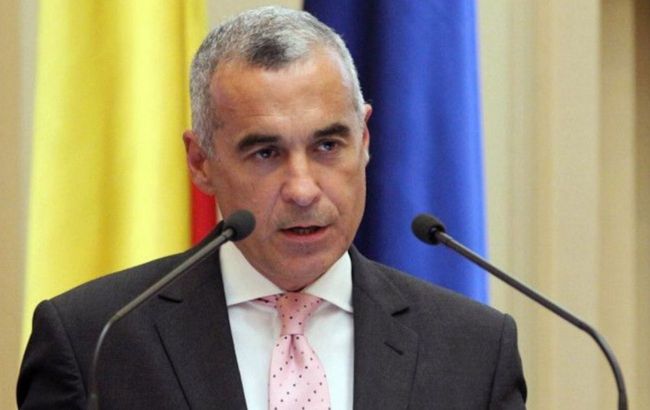Another Hungary? Will Romania become Ukraine's new problematic neighbor after the elections
 The winner of the first round of the election in Romania, Călin Georgescu (photo: al24news.com)
The winner of the first round of the election in Romania, Călin Georgescu (photo: al24news.com)
The pro-Russian radical Călin Georgescu may win the presidential election in Romania. His emergence threatens Ukraine with another problematic EU and NATO member state.
How it became possible, whether there are chances to stop him in the second round of the presidential election, who his competitors are, and how Georgescu is similar to Viktor Orbán - read in the RBC-Ukraine article.
Contents
- Who made it to the second round of the presidential election
- What are the candidates' chances?
- Parliamentary fuse
- Another warning for Europe
Since the beginning of Russia's full-scale invasion, Romania has remained an important, though not always public, ally of Ukraine. Through Romanian ports, Ukraine broke through the Russian maritime transportation blockade. Bucharest provides Ukraine with weapons and accepts refugees. However, Romania's position, at least in part, may change not in favor of Ukraine in the coming weeks.
In a long line of elections around the world this year, the Romanian ones were considered one of the relatively calm ones in 2024. The two leading parties - the National Liberal Party (PNL) and the Social Democratic Party (PSD) - were to compete for power in the country. The presidential election was held on November 24, while the parliamentary election on December 1.
The presidential election brought surprises. Contrary to all the polls, both candidates from the two top parties, the current Prime Minister Marcel Ciolacu (PSD) and the former Prime Minister Nicolae Ciucă (PNL), failed to even make it to the second round.
Instead, an independent radical far-right candidate, Călin Georgescu, who won 22.94% of the vote, and a pro-European (and pro-Ukrainian) oppositionist from the Save Romania Union (USR), Elena Lasconi, are competing for the presidency (19.18% of the vote).
Who made it to the second round of the presidential election
Georgescu openly declares his far-right views and even flaunts them. He glorifies the times when Romania was an ally of Nazi Germany in World War II. He also called Russia's war against Ukraine the result of a “conspiracy of American arms manufacturers.”
However, after his success in the first round of elections, he began to adjust his position. For example, on November 27, the politician denied accusations that he wanted to withdraw Romania from NATO and the European Union.
“I have never said that. But I did say that I want to negotiate and put national interests first. We can't accept everything, everything has to be talked about in favor of the Romanian people, regardless of whether you are a member of any club,” said Georgescu.
The consensus opinion of the Romanian and European media is that the high result of Georgescu was possible by protest voting and the fear of war among some voters who are dissatisfied with the mainstream parties, as well as by the candidate's successful use of TikTok.
“With the suddenly emerging Romanian presidential candidate, Europe has actually gained a third 'dove of peace' alongside Slovakian Prime Minister Robert Fico and Hungarian Viktor Orbán. After all, the main message of the election campaign of Călin Georgescu is a “pro-peace” policy, which requires good relations with everyone, even with the aggressor state,” Vitalii Diachuk, an analyst at the Institute for Central European Strategy and the Re:Open Ukraine project, told RBC-Ukraine.
Georgescu's opponent, Elena Lasconi, also represents the opposition, but she is pro-European and not as radical. A former journalist, she positions herself as a new face in opposition to the old political elites.
Lasconi also calls for increased support for Ukraine. Among other things, she criticized the current Romanian government for not shooting down Russian drones flying over the country's territory.
It is still not clear who will win the second round.
What are the candidates' chances?
Both Georgescu and Lasconi need to win over voters who supported other candidates in the first round.
Georgescu can count on the votes cast for the leader of the far-right and anti-Ukrainian party AUR, George Simion, who garnered 13.87% in the first round.
At the same time, the fact that not much is known about him, despite his protest appeal, plays in his favor.
“Playing on the fear of war, he forgot to mention the Russian chess pieces that occasionally fall on Romanian territory and the alarms that have been sounding in Romania's border regions for a long time. Similarly, behind the confident slogans on peace, he has never delved into explaining what position he will take in relations with the EU and Russia and how Romania will shape the relevant policy. So far, this is just populism without a practical program,” Diachuk said.
The leadership of the National Liberals has already declared its support for Lasconi, apparently perceiving her as a lesser evil.
One should also expect the mobilization of the pro-European population of Romania to prevent Georgescu from coming to power. Rallies have already taken place across Romania demanding that the radical not be allowed to come to power.
Until December 8, when the second round of election will take place, both candidates will try to attract new supporters without losing the old ones.
Other far-right forces are trying to ensure that in the second round, it is not Lasconi who will compete with Georgescu, but the social democrat Ciolacu (who has already resigned as party chairman and did not contest the election results). In this case, it will be easier for Georgescu to criticize his opponent.
The candidate allied to the right-wing radical party AUR, Cristian Terheș (who gained about 1%), appealed to the Constitutional Court to demand a recount. The fact is that Lasconi made it to the second round with a margin of only 2,000 votes over Ciolacu. The Constitutional Court has already decided to recount the votes (which is technically impossible to do quickly), and the final decision on the case is due today, November 29, but it may be postponed.
Parliamentary fuse
Romania is a presidential-parliamentary republic. This means that the head of state can potentially influence the decision to provide Ukraine with weapons, block sanctions against Russia, and influence Ukraine's integration into the EU and NATO. But the good news for Ukraine is that even if Georgescu comes to power, the president will be balanced by the parliament. Election to it will be held this Sunday, December 1.
As an independent candidate, Georgescu has no party. He may be supported by the far-right parties AUR and SOS Romania. In 2020, AUR even proposed that Georgescu become prime minister if it came to power.
According to Politico's aggregated polling data, both parties can now count on 17% and 6% respectively.
Lasconi's USR party may get 13%. The National Liberals have 17%, and the Social Democrats have 31%. Also, the Democratic Alliance of Hungarians in Romania has a chance to enter the parliament with 5%. So, arithmetically, the majority should remain with the systemic national liberals and social democrats.
The challenge is whether the majority of Romanian politicians will be able to unite against the radicals. Especially since the leaders of the National Liberals and Social Democrats, Nicolae Ciucă and Marcel Ciolacu, resigned as party leaders after losing the presidential election. The fierce struggle between pro-European forces, including the leaking of dirt, was one of the factors behind the shocking victory of the independent Georgescu in the first round.
Another warning for Europe
Regardless of the outcome of these elections, in the longer term, Romania is experiencing the same trend as other Western countries - the rise of non-systemic populists.
“Given that the anti-globalization trend in many countries is gaining momentum, focusing not on unification for the sake of common welfare but on the depths of the nation state, on strengthening nationalist principles, politicians' statements such as preserving national identity and the 'sovereignty' of nation states within the EU are gaining popularity among voters,” expert Vitalii Diachuk told RBC-Ukraine.
According to him, the opposition between “we” (as the people of a particular country) and “they” (the European Union, Brussels) is sometimes used. This method has been well tested and used by Viktor Orbán in his confrontation with the European Commission. The desire of the modern voter now is to see “a president who would go to Brussels and stand upright, not on his knees.” And this is a direct quote from a Romanian businessman after the first round of the presidential election, Diachuk emphasized.
All of these tools were used by Georgescu in his short but vivid online campaign.
The politician also formed the image of a self-confident specialist with Western education, as opposed to the existing politicians from PNL and PSD, who have already bored Romanians with their coalitions and squabbles within them. Nevertheless, he managed to weave so much disinformation into seemingly rational statements that he can easily be compared to the odious right-wing radicals of AUR and the inadequate MEP Diana Șoșoacă (who made territorial claims to Ukraine and tried to “drive the devils out of the European Parliament building”).
“It is hardly worth comparing Călin Georgescu to the controversial Miloš Zeman (former Czech president - ed.) and Zoran Milanović (Croatian president - ed.). His line, at least during the election campaign, is closer to our neighbor Viktor Orbán, who is trying to play the role of an independent strong politician with an independent status at the EU level and ambitions to negotiate between the US, EU, and Russia. But how much it may change in the event of his hypothetical (but hopefully unlikely) victory in the second round is currently unknown,” Diachuk said.
Sources: statements by Romanian politicians, aggregated data from Politico opinion polls, and comments by Vitalii Diachuk, an analyst at the Institute for Central European Strategy and the Re:Open Ukraine project.

